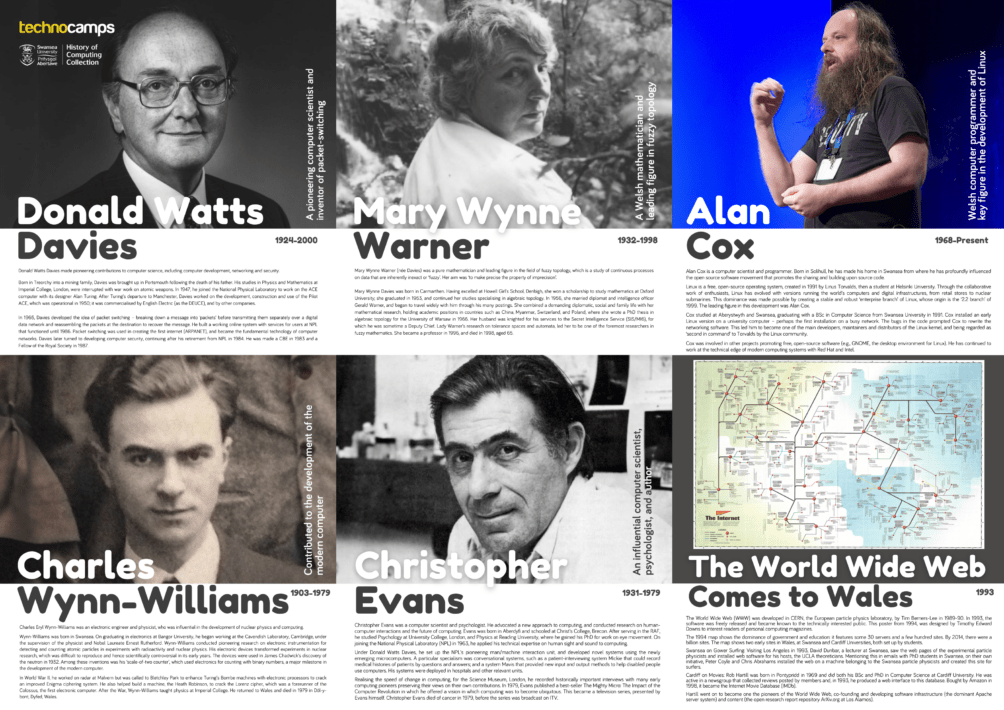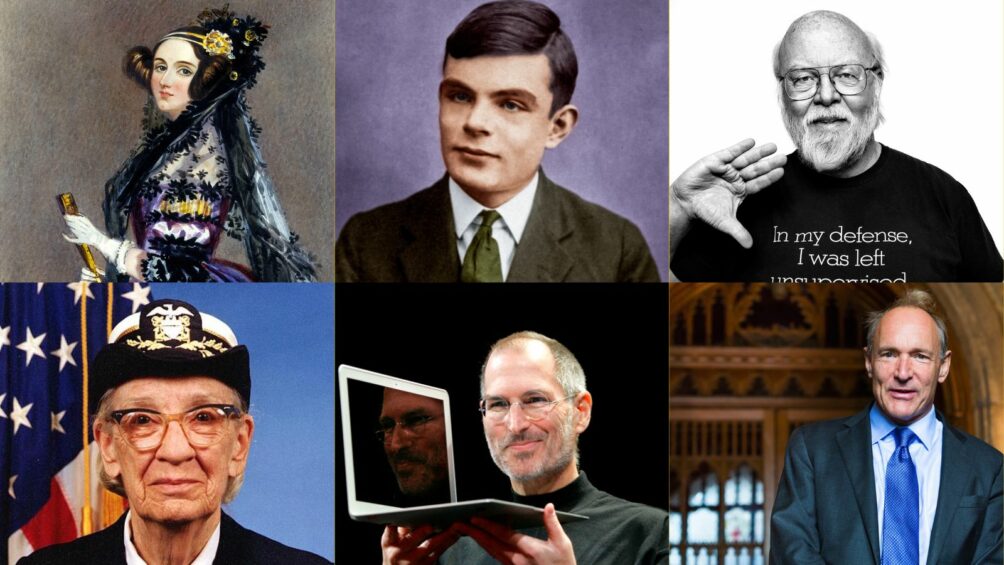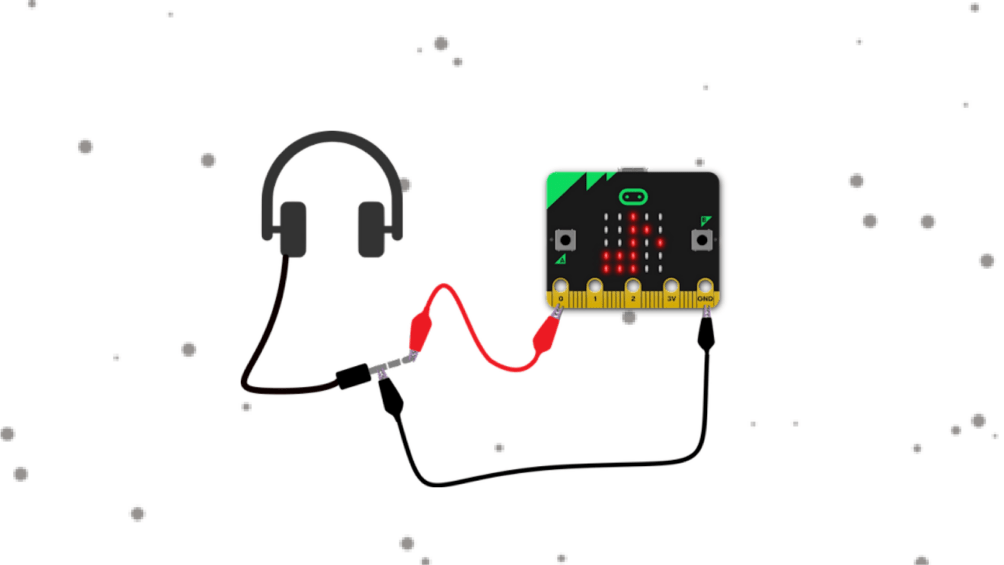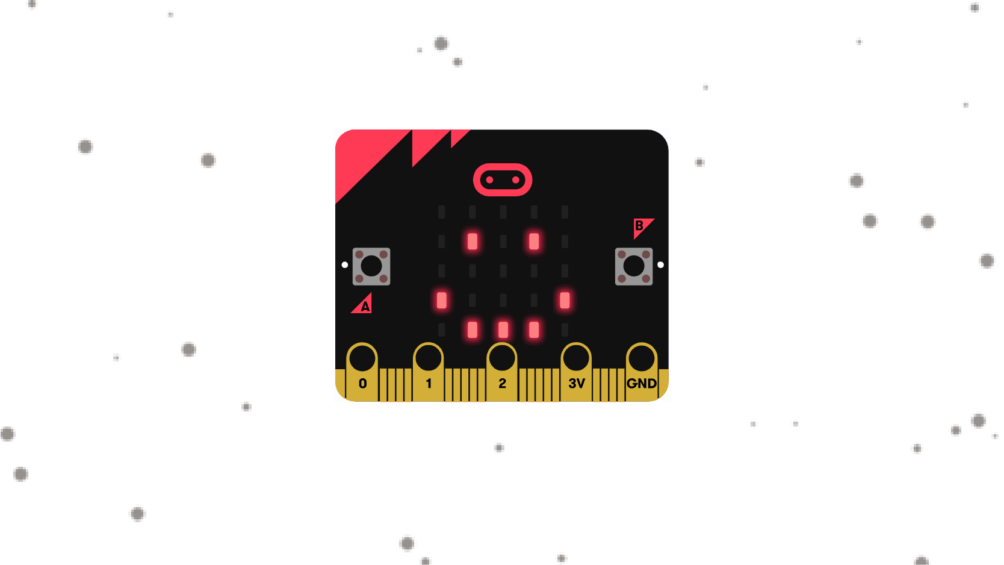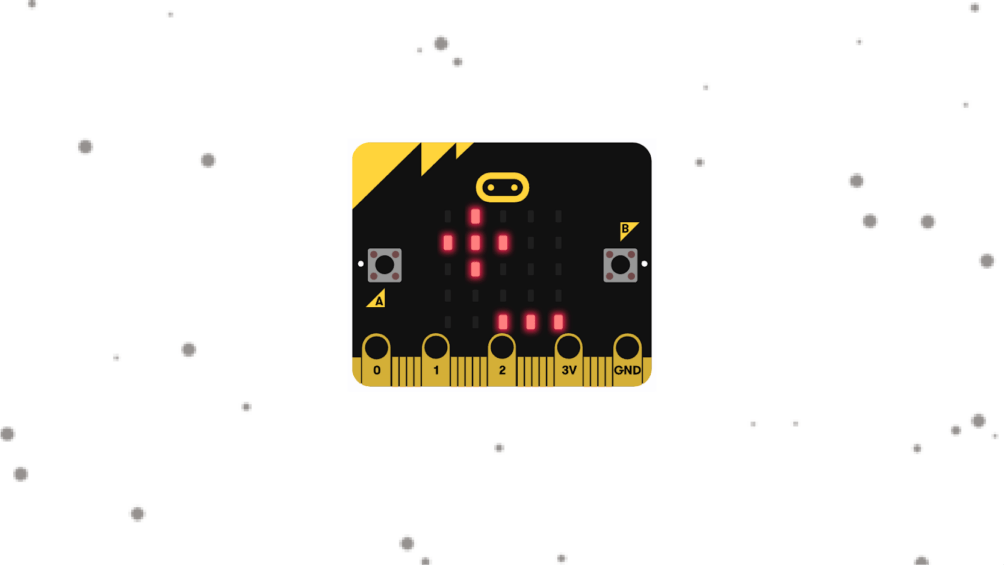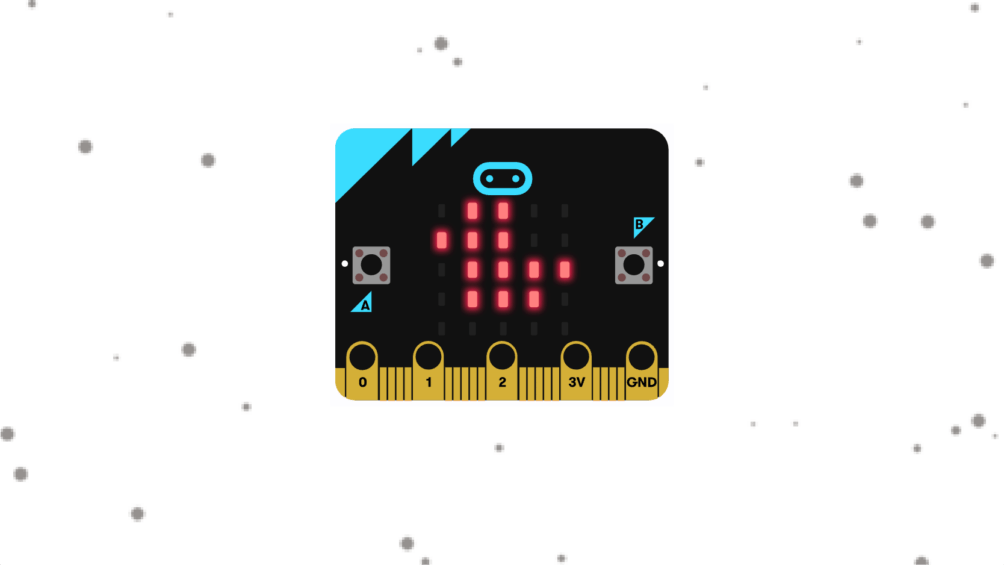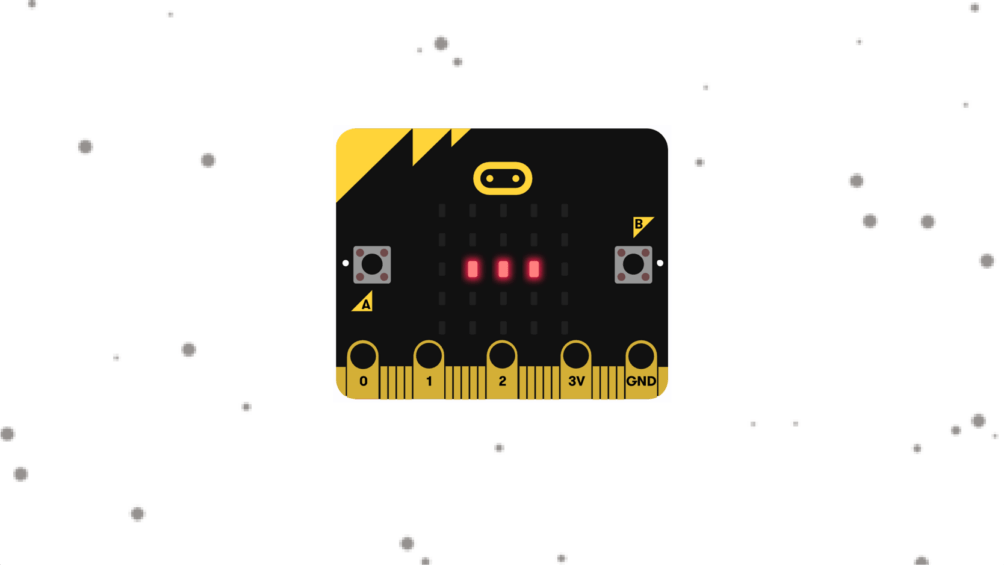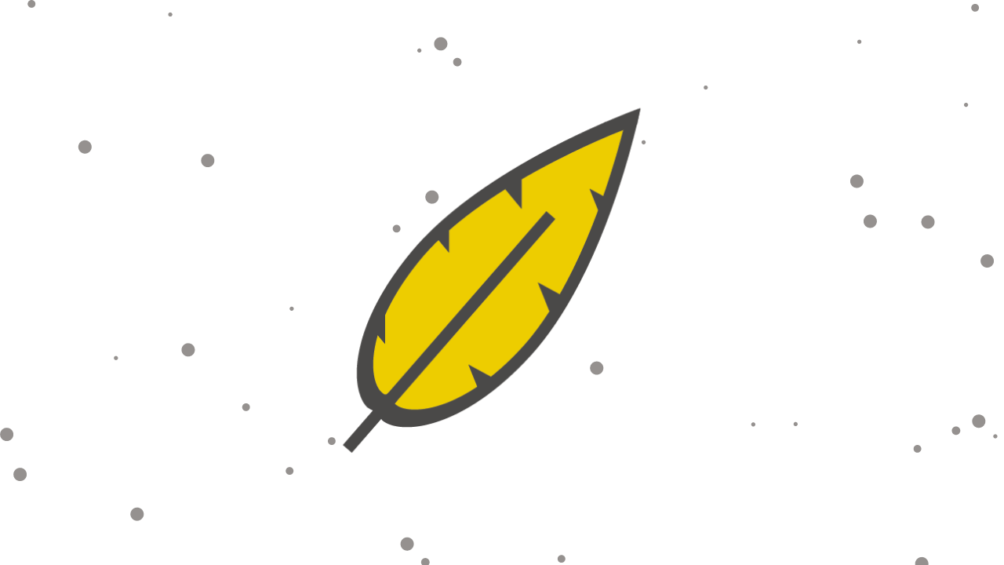This activity pack contains video tutorials to help you develop your programming skills and understanding through Scratch activities linking to various areas of the curriculum. This activity pack aims to familiarise you with Scratch and teach you the principles of programming along the way: Water Cycle States of Matter Translation Quiz
Welsh Computer Scientist Posters
Following on from our successful first batch of famous pioneers in the world of technology, aligning with the Digital Technology curriculum in Wales, we have produced posters with more of a local Welsh flavour. Download the combined A2 poster and the individual posters below!
DigiTech Computer Scientists Posters
We have designed some bilingual posters with information about well-known computer scientists for you to display in your classroom. These figures all appear in the curriculum and these posters contain useful information about their work. There are individual posters and a larger poster that contains biographies from all six scientists: James Gosling, Ada Lovelace, Alan Turing, Tim Berners-Lee, Steve Jobs … Read More
micro:bit – Musical micro:bits
This micro:bit workshop covers areas of the Science and Technology and the Expressive Arts Areas of Learning and Experience. Pupils will learn the basics of block-based programming and how to use conditional statements to make decisions in computer programs. The resource will also allow pupils to create their own musical compositions by making use of iteration and the micro:bit’s in-built … Read More
micro:bit – Mathematics Game
This micro:bit workshop covers areas of the Science and Technology and Mathematics and Numeracy Areas of Learning and Experience. Pupils will learn the basics of block-based programming and how to use conditional statements to make decisions in computer programs. The resource will also allow pupils to create their own mathematics game to help them and their classmates develop their problem … Read More
micro:bit – Health and Wellbeing
This micro:bit workshop covers areas of the Science and Technology and Health and Wellbeing Areas of Learning and Experience. Pupils will learn the basics of block-based programming and how to use conditional statements to make decisions in computer programs. The resource will also allow pupils to create programs to self-regulate emotions, and communicate their feelings in an alternative way. To … Read More
micro:bit – Electricity
This micro:bit workshop covers areas of the Science and Technology and Humanities Areas of Learning and Experience. Pupils will learn the basics of block-based programming and how to use conditional statements to make decisions in computer programs. They will also explore how conductivity of materials works and how to test for conductivity using the micro:bit. To receive free workshops or … Read More
micro:bit – Helping Animals
This micro:bit workshop covers areas of the Science and Technology and Humanities Areas of Learning and Experience. Pupils will learn the basics of block-based programming and how to use conditional statements to make decisions in computer programs. They will also explore how technology can be used to help humans cohabit the Earth with other species in a more eco-friendly and … Read More
micro:bit – Morse Code
This micro:bit workshop covers areas of the Science and Technology and Languages, Literacy and Communication Areas of Learning and Experience. Pupils will learn the basics of block-based programming and how to use conditional statements to make decisions in computer programs. They will also program their own methods of communicating wirelessly with their friends, focusing on Morse code using the micro:bit. … Read More
The White Feather
Accompanies the Theatr na nÓg production. Learn all about World War I and try out different methods for writing and breaking coded messages, and use these skills to defuse a virtual bomb. The accompanying Scratch Programs can be found here: Workshop Version: https://scratch.mit.edu/projects/311922349/fullscreen/ Home Version: https://scratch.mit.edu/projects/311923110/fullscreen/

